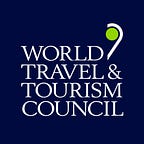Travel & Tourism is a tool for the sustainable development of a whole country
Reap swift financial benefits by developing your country with mass tourism or opt for long term, low impact eco-tourism. Which would you choose?
Here’s what Botswana Tourism did. You might be surprised at their decision.
Sustainable tourism has been around a while. There are many examples of projects doing great work all over the world. We’ve focussed on some already: like the Burren community project in Ireland and Reality Tours in the world’s largest slum.
Done right, sustainable tourism offers livelihoods for communities, meaningful travel experiences for tourists and protection for indigenous species and ways of life.
Few would argue that it’s not an inherently good thing. But often sustainable tourism initiatives are small scale, dependent on the passions and ambitions of a tight group of people.
So, how do you accelerate the adoption of sustainable tourism principles? How do you achieve scale?
Here are some key requirements for accelerated take up.
Adopt and promote a high level strategy
Botswana is a prime example of a whole country getting on board with developing the tourism sector in a sustainable manner. That starts with a defined long term plan that lays out the principles and practices that need to be followed. It continues with sustained promotion of the plan and the values it espouses. The important thing is having a vision and a mission for a wide geographic area. Cape Verde is making great steps in this direction too.¹
Ensure complete buy-in at the top
It starts with people at the top. That usually means government. In the case of Botswana, it was the tribal leaders. They had the foresight in the 1960s when tourism in Africa was in its infancy, to choose sustainable tourism over mass market tourism. Unfortunately, at a global level, rules are often broken so there needs to be ways for people to be held to account. There needs to be transparency.
Protect the land, people’s rights and wildlife by law
Designation of key areas of natural worth as legally protected spaces is essential. Without a legal framework, the encroachment of businesses chasing profit before sustainability is always a risk. Without a legal framework, wildlife will always be threatened by encroachment and poaching. Without a legal framework, native communities will worry for their futures and won’t commit to making the ambitions of sustainable development work.
Encourage coexistence rather than trying to manage conflict
Hand-in-hand with protecting areas of natural value has to be gaining the trust and involvement of local, native communities. It’s essential to involve people right at the outset rather than imposing new regulations on them. In the past there was a tendency to force people who had lived on protected spaces for generations off their land. This is a recipe for failure. It’s essential to find ways to let them continue their customs and to provide opportunities for them to see direct financial benefit. Poachers can be retrained as guides, villagers who may have to stop farming the land need to be able to replace lost income with tourism-driven earnings.
Make sustainable tourism part of everyone’s mindset
Costa Rica was one of the earliest adopters of sustainable tourism at a country-wide level. There have been a few bumps along the way, but the country remains a beacon for careful development that protects wildlife and natural spaces. What’s interesting is that caring about the natural environment has become very much a part of the psyche of the nation. As one local commentator said: “Ecotourism has helped create the self-image of Costa Ricans. There’s a lexicon of environmentalism here, right up to the president.” ²
Or, as Jillian Blackbeard from Botswana Tourism puts it: “We realised the benefit of maintaining a last Eden.”
Watch Botswana Tourism’s story now >
¹ Source: UN Sustainable Development Platform #SDGAction2278
² Source: Giving a Grade to Costa Rica’s Green Tourism, Martha Honey
